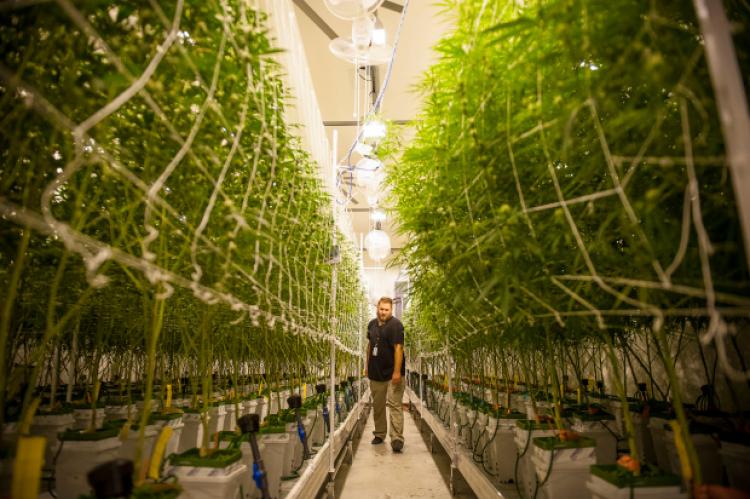California Cannabis And Taxes: A Shining City On The Coast
It is a fact that the legal cannabis industry has tremendous potential to generate significant tax revenue for states and municipalities in the years ahead. Earlier this year, for example, the California Department of Tax and Fee Administration reported that, from the day legal cannabis retail sales began in January 2018 until January 2020, the state had already collected more than $1 billion in taxes. And those are only state-level taxes.
Taxes are also imposed at the local level, and setting those rates requires a delicate balance. The tax must be high enough to provide legitimate benefit and positively impact a city or state’s budget. But, if the rate is too high, cannabis companies will look to tax-friendlier places to do business. Worse, scaring away legal cannabis businesses can result in the return of an illicit, unregulated market, negating a primary purpose of legalization.
One California city, Costa Mesa in Orange County, provides a recent example of how industry and a city council came together to create mutually beneficial tax policy.
Like other communities in California after adult-use legalization won at the ballot box in November 2016, Costa Mesa saw an opportunity to create new jobs and revenue. The City Council put to the voters a ballot measure in 2016 allowing cannabis manufacturers, testing labs, and distributors (although not retailers) to set up shop in a small part of town called the “Green Zone.” The City Council proposed what it thought was a reasonable tax rate – 6% for cannabis distributors and manufacturers on all gross income – which was passed by Costa Mesa residents by more than 9%.
The tax rate turned out to be steep and threatening to the industry. In California, cannabis businesses grapple with a 15% tax on wholesale products and a cultivation tax of $9.25 per ounce. That’s in addition to a sales tax, all of which are arguably passed on to consumers or patients. When combined with Costa Mesa’s 6% local cannabis tax, the expenses became untenable for the businesses there. Between 2017 and 2019, Costa Mesa approved licenses for 29 cannabis companies to operate in the city. Today, only 10 of those licensees are operational. The expected boom had become a bust, and something had to change for this industry to take root and grow in the city.
After industry lobbying in 2019 to reduce the 6% tax rate, the City Council revisited the issue, forming an ad hoc committee that included Mayor Katrina Foley, Mayor Pro Tem and Council Member John Stephens, and Council Member Manuel Chavez. The committee, and later the Council, listened closely to arguments on both sides and voted to reduce the tax on gross receipts of manufacturers and distributors to 1%. According to local cannabis lawyer Andrea Bird, founder of the Bird Law Group and an outside general counsel to legal cannabis companies, a guiding argument to the Council was that 1% of $1 million in tax receipts is more preferable than 6% of $100,000. To industry, the reduced tax rate would attract more companies to Costa Mesa and increase revenues, while the higher tax rate would result in a much smaller base of revenues.
While the Council members agreed, they were also clear-eyed that cutting the tax rate could simultaneously remove needed money from the city’s budget, according to Mayor Pro Tem Stephens. Given the capital, licensing, and other regulatory requirements, legal cannabis businesses cannot open overnight, and the revenue the city had previously drawn from the industry had been slashed to one-sixth of its value. The city needed to fill the budgetary shortfall. To do that, the Council decided to propose voting on opening the city to legal cannabis retailers, a move that would put the city in direct competition with towns like Santa Ana, which I understand have permitted dispensary and retail businesses for some time.
On July 21, the Costa Mesa City Council passed a new resolution by a sweeping vote of 6 to 1 to bring forth a ballot measure to residents this November to legalize retail cannabis in the city. Stephens told me the Council worked closely with the sector from the beginning to arrive at a palatable tax rate of between 4% and 7%, taking lessons from the manufacturer and distributor tax issue. The theory behind the proposal is that opening up for retail will create a larger base of sales in Costa Mesa, which will then lead to more business for the existing manufacturers and distributors and a more financially workable model for the industry and city. The plan’s fate now rests in the voters’ hands.
Costa Mesa’s lesson is that tax policy has a fundamental role to play in cannabis policies, with the need to heed the industry’s economics as much as the state or locality’s needs. Don’t be surprised to see more turbulence ahead where cannabis has been legalized, but do expect policymakers to learn the industry’s needs as much as their own.
- Log in to post comments

